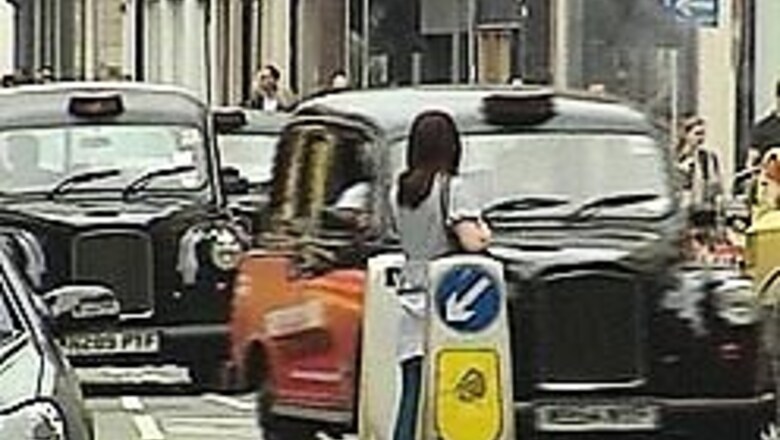
views
London: Not so long ago, being a taxi driver in London was considered a pretty good gig. Cabbies – as they're known – work for themselves and have traditionally earned above average wages. But driver Mehmet Nart says a lot has changed.
"I don't enjoy it anymore, you're challenging yourself every minute. Streets are quiet, traffic has increased,” says Nart, meaning, of course, that though there is more traffic on the roads, there are fewer people who can afford to travel by cab.
The biggest whammy, however, remains the cost of fuel, which has been soaring, as crude prices which doubled in the last year.
Since cabbies' fares are regulated by the government, they can't just pass on the pain to customers. They either work harder or make a lot less money.
"Instead of working eight hours, you have to work 12 hours and it gives you a more stressful day and you're thinking, ‘Well, I can only take so much’," Nart confesses.
He says if prices don't ease he'll have to consider another line of work.
But Nart and others like him won't get much comfort from Goldman Sachs' latest predictions. Its analysts say oil prices will likely rise to as much as $200 a barrel in the next couple of years. Other analysts suggest prices won't go that high and that slowdown in the world economy should eventually dent demand.
But if Nart is forced to work even more hours, it'll likely be in the night which, again, is not without its downside.
"You get quite a lot of drunk people," he points out.
He says the problem of drunken passengers – shall we say – losing their dinner in the back of cabs is so common there's now a set charge for the cleaning bill.
"So if they are seeking your cab, the fee is worth – say – 10 pounds, they have to give you another 40 pounds, so you can take it into a car wash to clean it back," he explains.



















Comments
0 comment